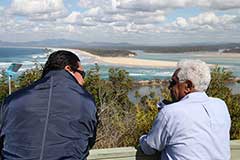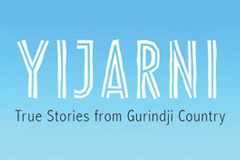Mick Dodson
Co-Chair, Reconciliation Australia

I can’t really remember the first issue of The Koori Mail because it seems like it’s always been around, much like an old friend. And when it arrives every fortnight it’s like that good friend dropping by. You look forward to it. Over the 20 years the paper has been published it has certainly played a significant role in reporting and commenting on the many events and decisions that have affected Indigenous people. I’ve always seen The Koori Mail as the voice of Aboriginal and Torres Strait Islander peoples, a truly Indigenous national newspaper that’s influential in presenting an Indigenous perspective, all the while simultaneously promoting and supporting reconciliation. I like the content of the paper and the way it’s set out. Of course, being a sports fan I enjoy reading the back section, but it covers the whole gamut of Indigenous issues and covers them well. And I can say with some experience that it compares very favourably with national Indigenous papers I’ve seen in the United States and Canada.
Over the past two decades, the relationship between black and white Australia has certainly improved although we still have a way to go. But we’ve managed to raise awareness and lift the level of cultural competency amongst non-Indigenous Australians, which makes us better placed than we were back then. Two initiatives spearheaded by Reconciliation Australia that give me great encouragement are the Australian Reconciliation Barometer and the introduction of Reconciliation Action Plans. The Barometer tracks the relationship between Aboriginal and Torres Strait Islander people and other Australians and provides a picture of just where that relationship sits. And recent results show we’re heading in the right direction. The take up of Reconciliation Action Plans by organisations all around the country has been a triumph. From large corporations to small community groups, RAPs are enabling organisations of all kinds to turn their good intentions into real actions. The ripple effect can only get stronger.
In looking ahead, I think the real challenge is to defeat the tendency in public policy to simplistically look to assimilationist answers to what are complex and challenging matters affecting the lives of Indigenous Australians. With the NT Intervention for example, you can see that the colonial project is well and truly alive and kicking, because the thinking’s the same. When it comes to such matters, it should be a process of respectful negotiation, not hasty consultation. That’s a directive from the Declaration on the Rights of Indigenous Peoples that we ought to follow. Just a word on the Australian media. The Barometer findings indicate that just nine per cent of Indigenous people and 16% of non-Indigenous people feel the media presents a balanced view on Indigenous issues. We need a media that is fair and objective, so I hope we can turn that around. In the meantime The Koori Mail remains a vital mouthpiece for our people, highlighting Indigenous enterprise, arguing against injustice and presenting stories that warm the heart and recognise our many high achievers.
I look forward to reading Edition 500, a wonderful milestone for all of us to celebrate.




